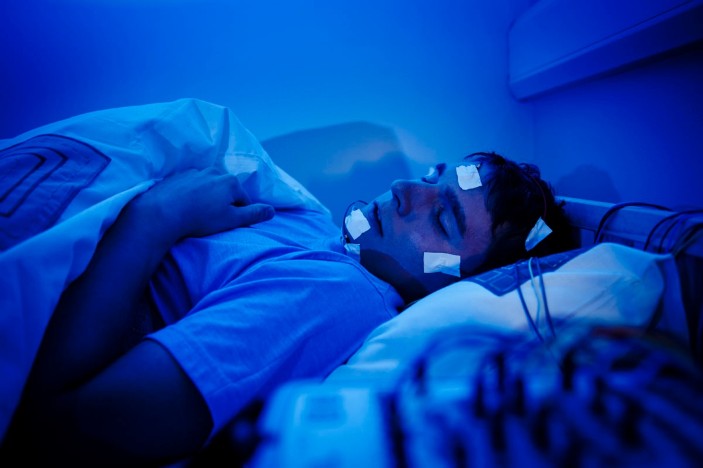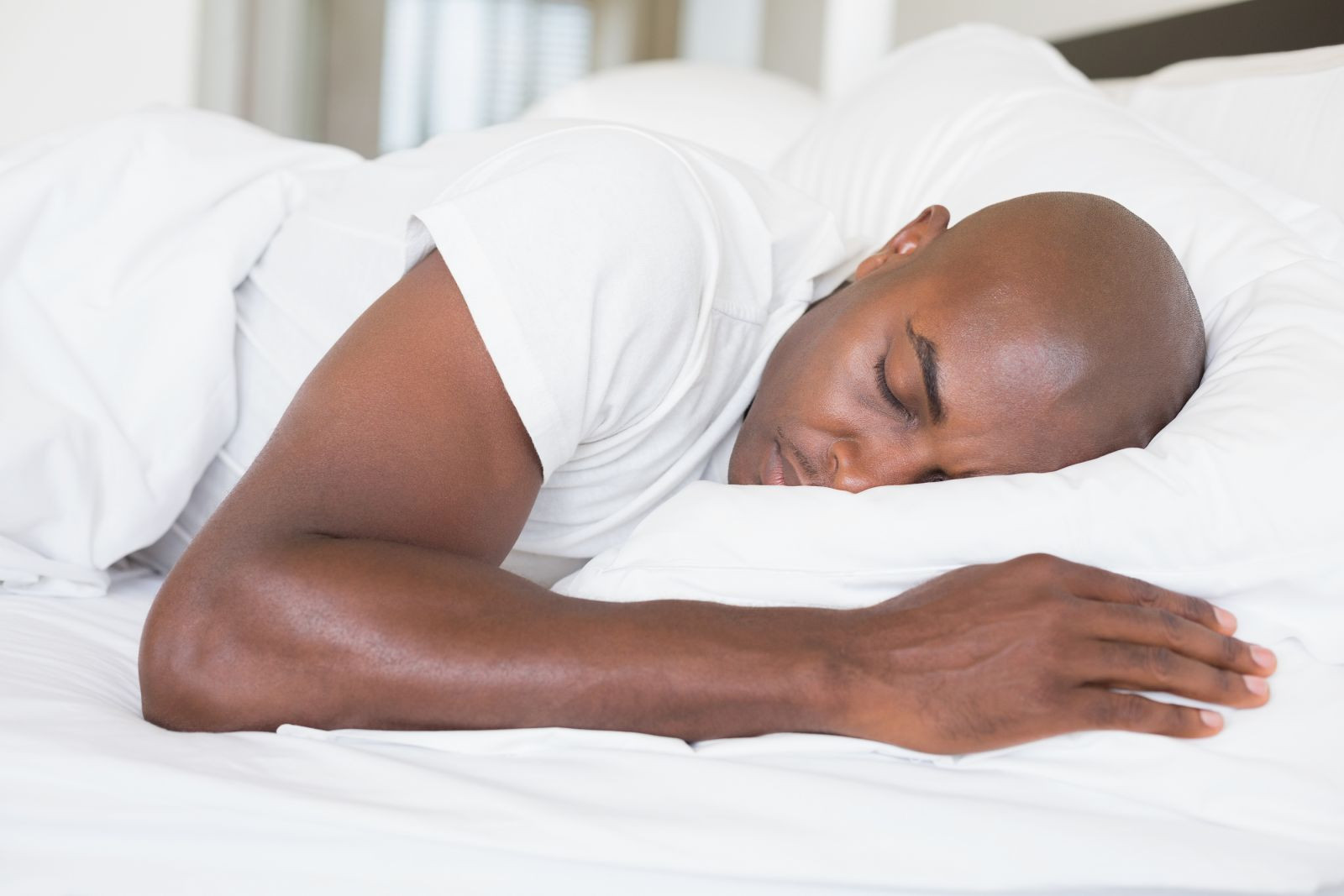Advanced Sleep Therapy - Attain Deep, Peaceful Sleep
Advanced Sleep Therapy - Attain Deep, Peaceful Sleep
Blog Article
Efficient Therapy Solutions for Handling Sleep Disorders and Enhancing Restful Sleep
In the world of health care, the management of sleep conditions and the quest for peaceful rest are pivotal components of general health. As we browse the elaborate landscape of rest disorders and look for to enhance our sleep experience, a deeper understanding of these therapy services may hold the key to opening an extra refreshing and satisfying restorative journey.
Cognitive Behavioral Treatment for Sleeping Disorders (CBT-I)
Cognitive Behavior Therapy for Insomnia (CBT-I) is a structured, evidence-based treatment approach that concentrates on attending to the hidden variables adding to rest disturbances. This kind of treatment intends to customize behaviors and thoughts that intensify sleep problems, ultimately promoting healthy sleep patterns. CBT-I commonly entails several key components, including cognitive treatment, rest restriction, stimulus control, and sleep hygiene education.
Cognitive therapy helps people identify and change negative idea patterns and ideas concerning rest that may be hindering their ability to fall or remain asleep. Rest constraint entails restricting the amount of time spent in bed to match the individual's real rest duration, therefore boosting sleep efficiency (insomnia solutions). Stimulation control methods assist establish a solid organization in between the bed and sleep by urging people to visit bed only when drowsy and to prevent taking part in stimulating tasks in bed
In addition, rest hygiene education and learning concentrates on establishing healthy and balanced sleep behaviors, such as keeping a constant sleep routine, creating a relaxing bedtime routine, and maximizing the sleep setting. By resolving these variables thoroughly, CBT-I provides a reliable non-pharmacological intervention for taking care of sleeplessness and improving overall rest quality.
Sleep Health Practices
Having developed the structure of cognitive restructuring and behavioral alterations in addressing sleeplessness through Cognitive Behavioral Therapy for Sleeping Disorders (CBT-I), the emphasis now changes in the direction of exploring crucial Sleep Health Practices for maintaining ideal rest top quality and general health.
Rest hygiene practices incorporate a range of routines and ecological factors that can significantly affect one's capacity to drop off to sleep and stay asleep throughout the night. Constant rest and wake times, producing a relaxing going to bed routine, and enhancing the rest environment by keeping it dark, quiet, and cool are crucial parts of excellent rest health. Limiting direct exposure to displays prior to going to bed, avoiding stimulants like caffeine close to bedtime, and participating in routine physical task during the day can also advertise far better rest quality.
Moreover, exercising leisure strategies such as deep breathing exercises or reflection prior to bed can assist calm the mind and prepare the body for rest. By including these rest hygiene practices right into one's day-to-day regimen, people can establish a healthy and balanced rest pattern that supports restful sleep and overall well-being.
Leisure Methods and Mindfulness
Executing leisure techniques and mindfulness techniques can play a critical duty in fostering a feeling of calm and promoting high quality rest. In addition, directed images can help transfer people to a tranquil location in their minds, assisting in anxiety decrease and boosting rest top quality.
Mindfulness practices, such as reflection and Discover More yoga exercise, are likewise effective in advertising leisure and improving sleep. Mindfulness motivates individuals to stay present in the moment, releasing bother with the past or future. By integrating these methods into a going to bed regimen, individuals can signal to their bodies that it is time to prepare and loosen up for rest. Overall, integrating relaxation techniques and mindfulness techniques can substantially add to handling sleep conditions and improving general sleep top quality.

Medicine Options for Rest Disorders
After exploring leisure techniques and mindfulness methods as non-pharmacological treatments for boosting sleep high quality, it is necessary to consider medication choices for people with rest problems. In instances where way of living modifications and therapy do not supply enough alleviation, medicine can be a valuable device in helpful resources handling rest disruptions.
Typically prescribed drugs for rest problems consist of benzodiazepines, non-benzodiazepine hypnotics, antidepressants, and melatonin receptor agonists. Antidepressants, such as trazodone, can be useful for individuals with co-occurring depression and sleep disruptions - sleep deprivation help.
It is vital for individuals to speak with a doctor to figure out one of the most suitable medicine option based on their specific sleep disorder and medical history.
Light Treatment for Circadian Rhythm Regulation
Light therapy, additionally called phototherapy, is a non-invasive treatment method utilized to regulate circadian rhythms and enhance sleep-wake cycles. This treatment entails exposure to brilliant light that imitates natural sunlight, which aids to reset the body's internal clock. By revealing people to specific wavelengths of light, typically in the morning or evening relying on the preferred impact, light treatment can properly adjust the body clock to promote wakefulness throughout the day and boost peaceful rest at night.
Research study has revealed that light therapy can be especially beneficial for people with circadian rhythm conditions, such as postponed sleep stage syndrome or jet lag. It can also be practical for those experiencing seasonal affective disorder (SAD), a sort of clinical depression that normally occurs throughout the winter months when natural light direct exposure is lowered. Light therapy is typically well-tolerated and can be utilized combined with various other treatment approaches for rest problems to optimize results and boost overall rest top quality.
Conclusion
In conclusion, effective therapy remedies for handling sleep disorders and improving peaceful rest consist intrinsic sleep disorders of Cognitive Behavior modification for Sleeplessness (CBT-I), rest health techniques, leisure strategies and mindfulness, drug choices, and light treatment for body clock law. These approaches can aid individuals boost their rest high quality and overall health. It is important to talk to a doctor to identify the most suitable strategy for resolving rest concerns.
As we browse the detailed landscape of sleep problems and look for to improve our rest experience, a much deeper understanding of these treatment options may hold the trick to opening a more relaxing and satisfying corrective journey.
Sleep limitation entails restricting the quantity of time spent in bed to match the person's actual rest duration, thus increasing rest effectiveness. Regular rest and wake times, creating a relaxing going to bed routine, and enhancing the sleep setting by keeping it dark, silent, and cool are critical elements of great sleep hygiene. Light treatment is normally well-tolerated and can be utilized in combination with other therapy techniques for rest disorders to maximize results and improve total rest quality.

Report this page